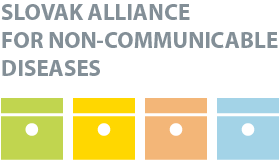—
5. Provision of services
| << PREVIOUS
4.2 Human resources |
Introduction – Organization – Financing – Resources – Provision – Reforms – Assessment – Conclusions – Appendices | NEXT >>
5.1 Public health |
- 5.1 Public health
- 5.2 Patient pathways
- 5.3 Ambulatory care
- 5.4 Inpatient care
- 5.5 Emergency care
- 5.6 Pharmaceutical care
- 5.7 Rehabilitation/intermediate care
- 5.8 Long-term care
- 5.9 Palliative care
- 5.10 Mental health care
- 5.11 Dental care
- 5.12 Complementary and alternative medicine
- 5.13 Health care for specific populations
Public health is supervised by the PHA, which concentrates predominantly on the monitoring of communicable diseases. The PHA organizes an immunization programme that is carried out by GPs and financed by health insurance companies.
People have free choice of their GP. There is also free choice of specialist for specialized care. If a service is not covered by SHI or the provider is not contracted, an individual may still receive reimbursement but only if the health insurance company gives prior authorization.
Ambulatory care consists of general care and specialized care. Emergency medical services and 24/7 first aid medical services (see section 5.5) are special ambulatory care services. Also one-day surgery is provided as part of ambulatory care. Since 1993, many services in ambulatory care have been privatized. All GPs have their own private practices. Most specialized outpatient departments have been privatized as well, either as independent practices or associated with polyclinics. Hospitals with attached polyclinics represent a significant market share of specialized ambulatory care.
Hospitals in Slovakia are divided into general hospitals (including university hospitals) and specialized hospitals, depending on the services they offer. Hospitals also have an ambulatory component, in which hospital-based specialists provide specialized ambulatory care. Inpatient health care facilities include sanatoriums, hospices, day-care centres, natural healing spas and balneotherapy institutions. Mixed ownership of inpatient care providers is common, with the state owning a significant share.
Emergency medical services provide urgent care in sudden life-threatening situations. Emergency medical services are provided by a dense network of private and public providers operating in a total of 280 areas accessible to patients within 15 minutes of the emergency call (in 95% of Slovak territory).
Slovakia’s pharmaceutical expenditure accounts for one-third of public expenditures on health care, the highest share in all OECD countries. The provision of pharmaceutical care is monitored by the SIDC. Distributors and pharmacies are virtually all private.
Rehabilitation facilities provide professional physiotherapy services as well as various therapeutic procedures and techniques. Balneotherapy, a regional tradition that combines spa visits with various therapeutic treatments, is provided in natural healing spas or balneal facilities. In 2009, balneal treatment was provided in 20 natural healing spas and 10 balneal facilities.
There is a lack of coordination between the health care and social care frameworks in the long-term care sector. Similar services provided in health care facilities and in social care facilities are subject to different regulations and financing arrangements.
Palliative care is covered by SHI. The amount reimbursed by health insurance is often insufficient and additional financing from sponsors or donations is necessary. In 2008, hospice care was provided in 9 facilities with 120 beds in hospices, 269 beds in hospital-based departments of palliative care and 4 mobile hospices.
Mental health care is provided in outpatient and inpatient settings and is covered by SHI. In 2008, psychiatric services were provided in 386 outpatient departments and in 81 inpatient departments with a total of 4379 beds.
Dental care is provided by contracted and non-contracted dentists. Dental procedures often necessitate direct payments from the patient. In most cases, SHI only covers basic dental costs, under the condition that the insured patient has had a preventive dental examination in the past calendar year.
Complementary and alternative medical services are predominantly provided in private specialized outpatient departments or specialized facilities. These are not covered by SHI.
Official statistical data on the ethnic composition of the population are not available. It is assumed that approximately 350 000 to 380 000 Roma live in Slovakia. The inclusion of this group is difficult due to their unfavourable social situation, racial prejudice and their long-term dependency on social benefits.
News
The amendment of the Decree on emergency medical service
Health insurance companies returned over 400 thousand €
The HCSA received 1,647 complaints last year
A half million people will earn more
Most of public limited companies ended in the black
Debt of hospitals on premiums has grown to nearly € 105 MM
Slovak health care may miss € 250 million next year
Profits of HIC amounted to € 69 mil. last year
Owners of Dôvera paid out money but did not paid taxes
Like us on Facebook!
Our analyses
- 10 Years of Health Care Reform
- New University Hospital in Bratislava
- Understanding informal patient payments in Kosovo’s healthcare system
- Analysis of waiting times 2013
- Health Policy Basic Frameworks 2014-2016
- Analysis of informal payments in the health sector in Slovakia
- Serbia: Brief health system review
developed by enscope, s.r.o.
